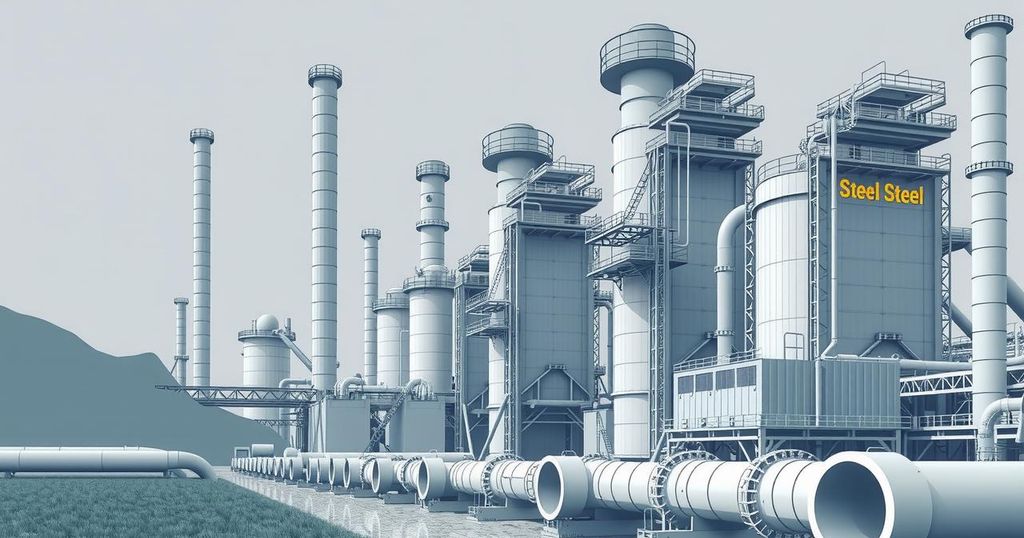Brazil Government Renews Tariffs and Quotas on Steel Products

The Brazilian government has renewed tariffs and quotas on steel products, aiming to protect local industries. The decision aligns with a reported earnings increase from Companhia Siderúrgica Nacional (CSN). This policy may impact Brazil’s negotiations with the U.S. regarding steel imports, reflecting a strategic approach to domestic manufacturing amidst evolving trade relations.
In a move aimed at bolstering domestic production and protecting local industries, the Brazilian government has renewed tariffs and imposed quotas on steel products. This action represents a significant policy decision, reflecting an ongoing commitment to prioritize national manufacturing capabilities over international competition. The specific details regarding the new quotas and tariff rates were not disclosed at this time, but the announcement has already stirred discussions among industry stakeholders about its potential implications for both local producers and international trade relations.
The timing of this policy revision comes as Brazil’s Companhia Siderúrgica Nacional (CSN) recently reported a notable increase in its earnings for the first quarter of 2025, with an adjusted EBITDA soaring to 2.5 billion reais, marking a 27.6% increase compared to prior periods. Analysts suggest that the renewed tariffs could provide an additional impetus for companies like CSN to expand their production, thereby solidifying their position in the market. This could particularly impact companies considering investment decisions in Brazil’s steel sector.
As discussions about steel quotas continue, it seems Brazil is maintaining a cautious approach in its negotiations with the United States regarding steel imports. Earlier reports indicated that CSN was optimistic about having room for negotiations, hinting at potential adjustments that could benefit both nations while protecting Brazil’s local manufacturing. The interaction between Brazil’s tariff strategy and U.S. import policies is expected to be critical, given the backdrop of ongoing trade disputes.
Other market players, such as ArcelorMittal, are keeping a close eye on developments, particularly looking ahead to May for crucial decisions regarding new investments in Brazil. The overall sentiment within the steel industry appears mixed, with some expressing optimism about enhanced domestic production opportunities and others noting potential challenges arising from rising costs associated with tariffs.
Moreover, recent financial data reveals that Brazil’s mining sector has also seen a rise in revenue, suggesting a broader positive trend within resource-based industries. This interconnectedness of sectors indicates that government policies on steel tariffs not only affect the steel industry but have a ripple effect across the entire economy.
The government’s latest moves are seen as both a protective measure for local manufacturing and a strategic positioning in international trade dynamics, especially amidst evolving economic landscapes. Analysts and stakeholders alike will be monitoring the effects of these tariff renewals closely, as Brazil navigates its path forward in a complex global market.
In summary, Brazil’s government has decided to renew tariffs and quotas on steel products to prioritize local production, a decision that has garnered mixed reactions in the industry. The renewed measures coincide with CSN’s reported surge in earnings, underlining the potential for strengthened domestic manufacturing. Additionally, the ongoing trade considerations with the United States will play a key role in shaping future developments in the sector. Overall, these policy changes signal Brazil’s broader strategy to enhance its manufacturing landscape in a competitive global environment.
Original Source: www.marketscreener.com








